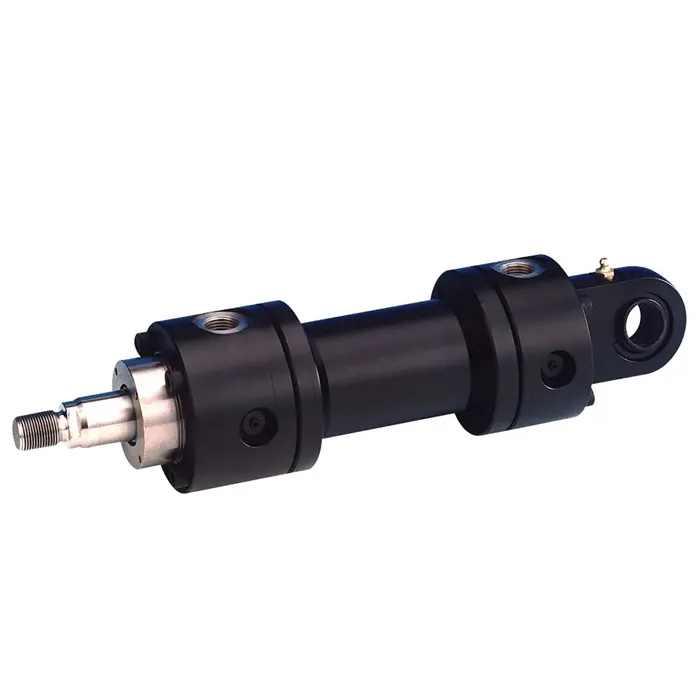Utilizing Hydraulic Cylinders in Construction Projects
hydraulic cylinders are indispensable components in the construction industry, providing the force and precision needed to accomplish a wide range of tasks efficiently. Understanding how to effectively use hydraulic cylinders can significantly enhance productivity and streamline construction processes. Here's a guide on harnessing the power of hydraulic cylinders in construction:
1. Lifting and Positioning:
Hydraulic cylinders are adept at lifting and positioning heavy loads with precision. They can be integrated into various construction equipment such as cranes, Excavators, and forklifts to hoist materials to elevated locations or maneuver them into precise positions.
2. Earthmoving Operations:
In earthmoving operations, hydraulic cylinders play a vital role in controlling the movement of equipment attachments such as buckets, blades, and rippers. They enable excavators, bulldozers, and loaders to efficiently dig, grade, and level terrain according to project specifications.
3. Compaction and Paving:
Hydraulic cylinders are instrumental in compacting soil and asphalt during road construction and pavement projects. They power compactors and rollers, exerting the necessary pressure to achieve optimal compaction density and surface smoothness.
4. Demolition and Deconstruction:
During demolition and deconstruction projects, hydraulic cylinders are utilized to apply controlled force to break down structures and remove debris. Hydraulic-powered crushers, shears, and breakers enable precise and efficient dismantling of buildings and infrastructure.
5. Formwork and Concrete Placement:
Hydraulic cylinders are employed in formwork systems to support and adjust the positioning of concrete molds during pouring and curing. They ensure the proper alignment and stability of formwork structures, facilitating the construction of concrete elements such as columns, walls, and beams.
6. Bridge Construction and Maintenance:
In bridge construction and maintenance, hydraulic cylinders are essential for lifting and positioning heavy bridge components such as beams, decks, and segments. They enable the assembly, installation, and maintenance of bridges with precision and safety.
7. Safety and Maintenance:
Proper maintenance and inspection of hydraulic cylinders are crucial to ensure their reliable performance and longevity. Regular checks for leaks, wear, and damage should be conducted, and hydraulic fluids should be monitored and replenished as needed to prevent malfunctions and accidents.
Conclusion
Hydraulic cylinders are versatile tools that play a fundamental role in the construction industry, offering the power, control, and reliability required to tackle a diverse array of construction tasks. By leveraging hydraulic cylinders effectively, construction professionals can enhance productivity, safety, and project outcomes, ultimately contributing to the successful completion of construction projects.
Saivs brand
- A6V28/A7V55~500 Rexroth Hydraulic Pump Parts
- Two-post Car Lift
- Rexroth pressure relief valve DR6DP DR10DP DR10 DR20 DR30
- Rexroth proportional reducing valve 3DREP6 Series
- Mobile Mast Aerial Work Platform
- Single drum 10000/11000/12000 lbs pounds 5T 5000kg hydraulic winch
- t6dc ultra-low pulse double hydraulic vane pump
- RVP hydraulic sandwich check valve
- A10VSO16~45/A10VO45/52/A10VSO63~140 rexroth parts
- Z1S6 Z1S10 Z1S10P Z1S10P1-30/V Rexroth hydraulic Check valve
Related News
- Hydraulic Winches: Working Principle Advantages and Comparison with Electric Winches
- Altering Oil Flow: The Impact of Directional Control Valves
- What to be careful about when choosing a Hydraulic Winch
- All You Need to Know About Poclain Ms125 Hydraulic Motor
- Dry Running Pumps: Understanding the Dangers and Prevention Methods
